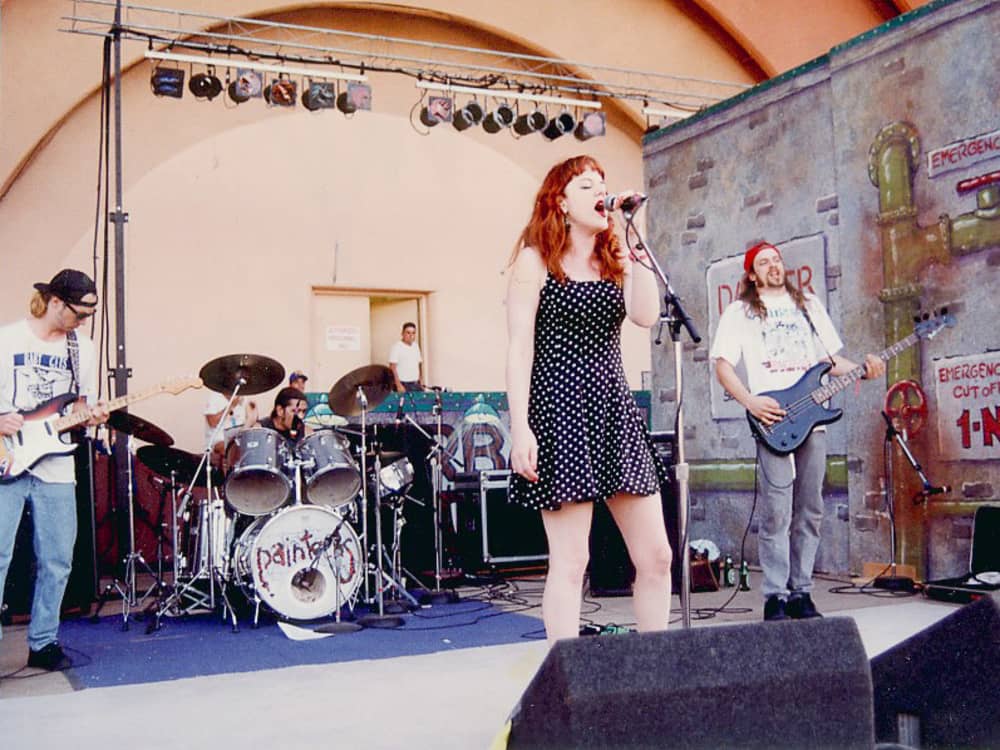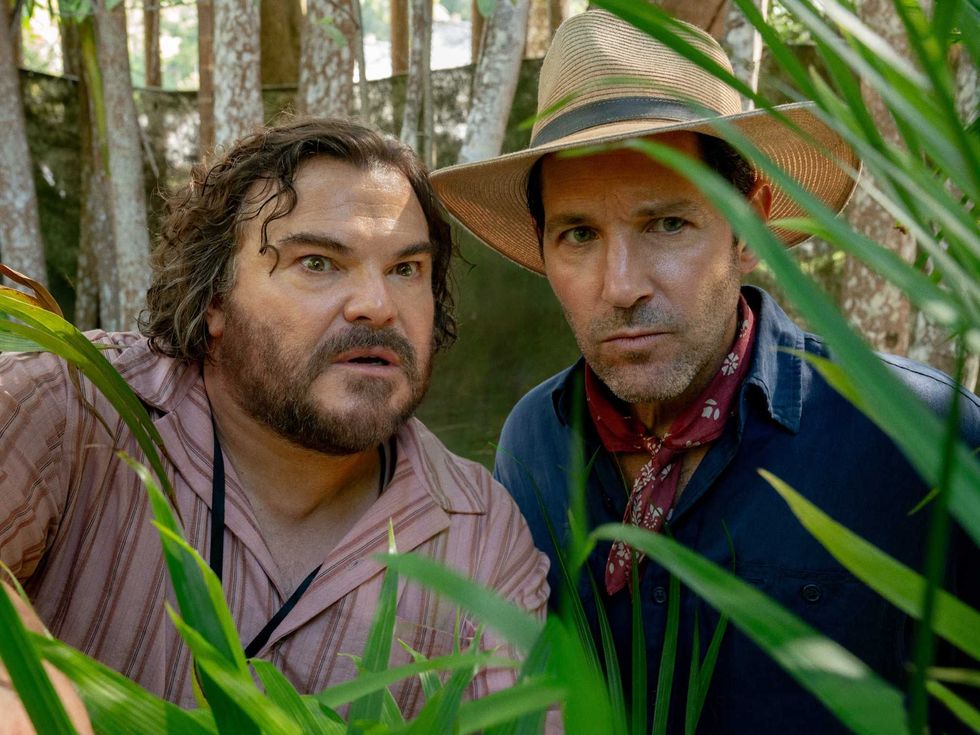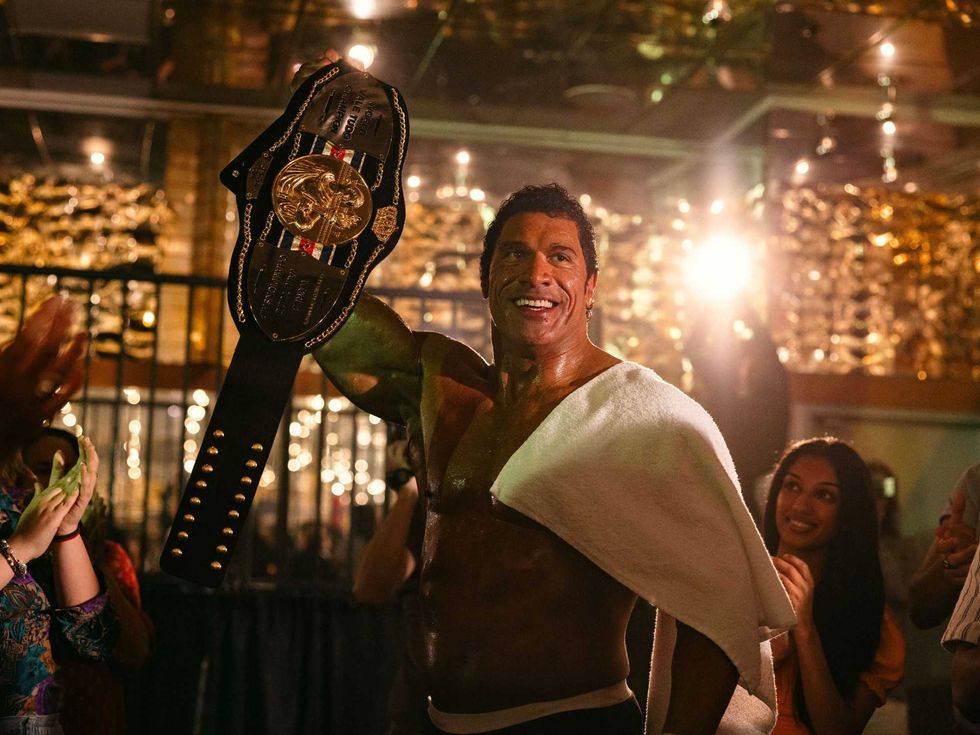 Bliss Blood of Houston's Pain Teens performing in 1991
Bliss Blood of Houston's Pain Teens performing in 1991 Scott Ayers and Bliss Blood, founders of the experimental band, Pain Teens
Scott Ayers and Bliss Blood, founders of the experimental band, Pain Teens Pain Teens in concert in Dallas, 1992
Pain Teens in concert in Dallas, 1992
It was rare for a Houston band to receive the kind of national press that Pain Teens enjoyed during its heyday. Houston is not the city for ambitious musicians looking to break out of the hometown scene, but it is a hotbed of underrated and overlooked rock bands. When Pain Teens found a national audience in the early 1990s, the punk kids of Houston could do little but take note. And now that Pain Teens' complete oeuvre, including the early cassette releases, can now be found on iTunes, kids that grew up with the band now have a chance to revisit it.
Pain Teens sounded like Texas. The band took the tape manipulations, decontextualized vocal samples and motorik beat of industrial music and wed it to something uniquely Texan: Fuzz guitar psychedelia. Unlike the wave of industrial acts from Chicago, for example, where industrial became just another kind of dance music, Pain Teens hewed closer to the genre's origin, making unflinching documents of atrocity and modern horror.
It's hard to say whether Pain Teens would have attained its success without the allure of its talented singer, Bliss Blood. She was a short, pretty redhead who preferred to dress in black, making her a minor sex symbol for young music enthusiasts. That she performed in an industrial band while holding down a day job as the hot, unapproachable clerk at a local record store made her doubly a cliché in the year when punk broke, but she did it with such panache that "cliché" is hardly the word that came to mind, especially when she was holding forth on bands or musicians that she just didn't like. Not that folks who didn't live in town knew anything about that.
Houston's obscurity could offer a source of inspiration for fledgling experimentalists. Because nobody expected much out of the city, basically anything put to wax or cassette tape would get a fair hearing. The Pain Teens' tape releases, which were later culled for the band's first two LPs, sound like rock music that has been taken apart and put back together again by somebody whose instruction booklet is missing a page or two. It was extreme and noisy, sure, but it also wasn't free of antecedents.
Pain Teens' sound emerged from the work of Scott Ayers, a punk guitarist whose world had been turned upside down by Eno and Byrne's "My Life in the Bush of Ghosts." Inspired by the album's ambient tape experiments, Ayers started looping up his own, except with a darker twist. As Bliss Blood recounted, "Scott's aesthetic was much more extreme and dark, very satirical and politically charged." Darkness and politics would never be far from Pain Teens' music.
Eno and Byrne were certainly not the only performers you could hear in early Pain Teens. Obvious influences like Cabaret Voltaire and Throbbing Gristle – the progenitors of the industrial aesthetic – mixed with less obvious ones. For a former punk like Ayers, adding a touch of the Stooges to his tape experiments was a no-brainer and something that San Francisco band Chrome had done, albeit quite differently, a decade earlier. (For a dose of Pain Teens proving its punk rock bona fides, check out this live cover of Black Flag and Iggy Pop.) More obscure would be the influence of the Pain Teens' fellow Houstonians Culturcide and Turmoil in the Toybox, both of which used found sounds, tape manipulation and strident politics to craft original – and in the case of Culturcide, satirical – takes on traditional rock forms.
The music on Pain Teens' early tape releases had little of the psychedelic riffing that would characterize their later work; the music was all feedback and soundscape. But it did explore the lyrical themes that would obsess the band for its duration: Rape, incest and child abuse; and mental illness, sexual perversion and the master-slave dialectic. Bliss Blood attacked these subjects with a surprisingly cogent feminism – Pain Teens wasn't horror show for the sake of horror show – that has possible antecedents in British anarcho-punks Crass and post-punkers X-Ray Spex. The strongest material from this period, like the cut "Unthinkable," has a stark, alienating darkness that makes for compulsive listening.
But Pain Teens was at its best when it added Texas psychedelia to the mix, and it's this element that makes "Born in Blood" (1990) essential listening. From the late 1960s heyday of International Records to the mid-1980s triumphs of the Butthole Surfers, Texas's best rock music always has come with a lot of guitar fuzz. Blame the heat and the easy availability of mind-altering fungus if you want, but Texas is psychedelia's undisputed champ. And, by the early 1990s, it was everywhere in Houston. Pain Teens' contemporaries The Mike Gunn, Dry Nod and Rusted Shut all incorporated the sound to varying degrees and with variable success. But Pain Teens happened upon a particularly potent strain.
Take "Born in Blood's" opening track, "The Basement." It tells the horrifying story of a sadist who keeps two little girls in a basement for the sick amusement of his friends. Bliss Blood's choppy vocals fall in line over the standard lockstep, industrial beat, but it is Ayers' backmasked guitar freak-outs and bluesy riffing that sends the listener into outer space. Unlike some of Pain Teens' industrial contemporaries, those in Chicago, for example, Ayers' guitar is the least inhuman instrument on the album. No rote, robotic and metallic chord changes for Ayers. His sound is full, warm and chromatic, and he is given to clever filigrees at the end of his solos that sound casual, improvisational. But, as on the shimmering "The Way Love Used to Be," he also is capable of microtonal restraint, using delay and backmasking to smooth the edges of his guitar playing into a dreamy soundscape.
Ayers and Bliss Blood had three more records left in them after "Born in Blood," but none of them would touch that album's grandeur. (A caveat: This reviewer's favorite Pain Teens track came from a 7-inch single released in the year following "Born in Blood." "Sacrificial Shack," which bills itself as "The True Story of the Satanic Cult Killings in Matamoros, Mexico," is one of the thickest slabs of psychedelia ever to come out of Houston.) "Stimulation Festival," which came out in 1992 to national acclaim, shares some of "Born in Blood's" strengths, but it sounds like a rehash, made slicker for a wider audience. "Destroy Me, Lover" (1993), by contrast, sounds like an embarrassing caricature of the Pain Teens. (A particular low point might be the sunshine pop anthem in favor of RU 486, which includes the line "My life is all my own/I'm not forced to reproduce." Laudable sentiment, eye-rollingly literal execution.) The band's final effort, "Beast of Dreams," returns Ayers to his roots: It's a mildly successful rehashing of "My Life in the Bush of Ghosts."
Despite the disappointing direction the band took as it developed a national audience, Pain Teens' hardcore fans can take solace in the fact that its best material has aged very well, and its worst material might just put off the rubberneckers, keeping the band honest, overlooked and underrated.
Sample the Pain:
Adobe Flash Required for flash player.
"The Basement"
Adobe Flash Required for flash player.
"The Way Love Used to Be"
Adobe Flash Required for flash player.
"Cool Your Power"
Rick Sawyer is a refugee from Houston who lives and writes in Boston, Mass. A former KTRU music director and disc jockey, he still writes "Texan" on his tax forms.











